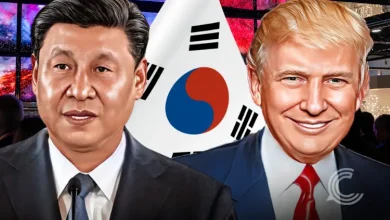COP30 Protesters Demand Immediate Climate Justice Amid Uproar

Key Points:
- Dozens of Indigenous protesters have breached the security perimeter at the COP30 climate summit in Belém, Brazil, leading to clashes with security guards
- The demonstrators are demanding immediate climate action, land rights, and an end to resource exploitation on their ancestral territories
- Despite the disruption, COP30 negotiations proceeded, focusing on mobilising climate finance for developing nations and accelerating cuts in powerful non-CO2 greenhouse gases like methane
The COP30 climate summit in Belém, Brazil, was rocked by an unexpected and intense confrontation on Tuesday when dozens of Indigenous protesters forced their way into the official venue. The demonstrators, a contingent from a larger march of hundreds, clashed with security personnel while urgently demanding concrete climate action and robust forest protection measures.
The incident, which occurred late in the day as delegates were preparing to leave, highlighted the raw tension between global climate negotiators and the communities most directly impacted by environmental destruction. The protests focus on what many Indigenous groups perceive as insufficient progress on land rights and the ongoing threat of industrial exploitation on their ancestral territories, as cited by a Reuters report.
Clashes Over Access and Rights
Shouting slogans and waving flags calling for their land rights, the protesters sought access to the United Nations compound where thousands of international delegates are gathered for the annual U.N. climate summit. Signs held by the crowd included the powerful message – “Our land is not for sale.”
Security guards worked quickly to push the crowd back, utilizing tables as makeshift barricades across the entrance. Reports from news agency Reuters indicated that the skirmish resulted in injuries to two security staff, one of whom was seen being rushed away in a wheelchair. A UN climate agency spokesperson confirmed the incident, stating that a group of protesters “breached security barriers” and caused “minor injuries to two security staff, and minor damage to the venue.”
The Demand for Land and Life
The protesters’ core demands directly address the relentless pressures on the Amazon rainforest and other vital ecosystems. Indigenous leader Gilmar, from the Tupinamba community near the Tapajós River, captured the fundamental sentiment and said –
We can’t eat money. We want our lands free from agribusiness, oil exploration, illegal miners, and illegal loggers.
This statement articulates the link between economic development driven by resource extraction and the existential threat faced by their way of life.
The struggle for land demarcation is central to their cause. Indigenous communities globally are recognized as the most effective stewards of the world’s forests. Studies have consistently shown that their lands and protected areas play a crucial role in curbing deforestation, with expansion of protection potentially preventing up to 20% of additional deforestation and 26% of carbon emissions by 2030. However, Indigenous activists argue that this critical role is often sidelined or underfunded in official climate policy.
Inclusion in the Amazonian COP
The location of COP30 in Belém, a city in the Brazilian Amazon, was intended to spotlight the region and the critical role of Brazil’s Indigenous communities. Brazilian President Luiz Inácio Lula da Silva has emphasized these communities as key participants in the negotiations.
However, despite this rhetoric, Indigenous representatives have voiced significant frustration over their limited access to the “Blue Zone,” the restricted area where formal negotiations take place. For instance, the Coalition of Indigenous Peoples of Brazil (APIB) noted that only a fraction of their representatives secured accreditation for the official negotiations, severely limiting their ability to directly influence policy outcomes, reported by Earth.Org. Activists, including some from the left-wing movement Juntos, have joined the demonstrations in support, underscoring this frustration.
Broader Negotiations at COP30
While the clashes captured global attention, the COP30 talks, hosted by Brazil for the first time, continued to address crucial elements of the Paris Agreement. The conference is centered on a critical phase in the climate change mitigation cycle, requiring countries to submit updated Nationally Determined Contributions (NDCs) that align with the goal of limiting global warming to 1.5∘C.
A key area of discussion has been the mobilization of climate finance for developing countries. The ‘Baku to Belém Roadmap,’ an informal document from the host countries, set the stage by referencing the need to mobilise $1.3 trillion annually for developing nations by 2035 to implement promised climate actions.



